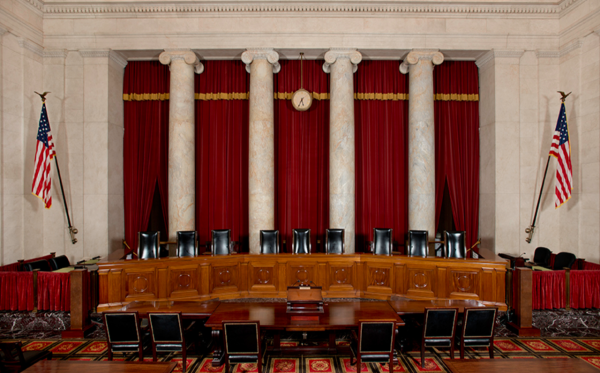Gun-Law Sanity Returning to D.C.
Since the Supreme Court’s 2008 decision overturning Washington, D.C.’s handgun ban in District of Columbia v. Heller, our nation’s capital has stood nearly alone in its level of contempt for residents’ Second Amendment rights. Two recent developments may give hope for a turn for the better. First, an NRA-supported case has ended in victory for residents of the District of Columbia’s public housing system, as the D.C. Housing Authority has finally changed its lease provisions to allow lawful gun possession in its properties.The case, brought by 66-year old William L. Scott, has now been dismissed in light of the change. This is an important victory, because gun bans in public housing are aimed squarely at low-income residents of high-crime areas, who may have an urgent need to be armed for self-defense. The victory puts an end to the housing authority’s defiance and foot-dragging in the face of multiple court decisions. The gun ban was put in place in January 2008, even though the U.S. Court of Appeals for the D.C. Circuit had already ruled that the Second Amendment protects a fundamental, individual right to keep firearms in the home.
Only a year after that ruling was upheld by the U.S. Supreme Court in District of Columbia v. Heller—and after prompting by Mr. Scott’s attorneys—did the housing authority even propose amending its leases. But the new lease changes were never made final until now, months after Mr. Scott filed suit in July 2011.
In the second notable development, the D.C. Council’s Committee on the Judiciary began work on a bill to roll back a few of the most extreme provisions of the District’s post-Heller anti-gun laws. Though final council action hasn’t yet occurred, the version of the bill passed by the committee on Feb. 29 would eliminate the District’s mandatory five-hour training requirement (including one hour of live fire). Instead, would-be gun owners would only have to watch a video presentation on gun safety—an easier alternative that even the District’s police department had favored all along.
Among other changes, the bill would also end the requirement that handguns registered in the District be test-fired for ballistic identification, a requirement that has proved useless in the handful of states that have imposed it, and postpone the implementation of a California-style “microstamping” requirement. In testimony submitted to the committee, NRA-ILA Director of State and Local Affairs Charles H. Cunningham noted that, while the changes would be welcome, they don’t go nearly far enough in respecting citizens’ rights. In addition to the provisions already in the bill, NRA suggested bringing the District’s laws into the mainstream by abolishing mandatory training entirely, along with long gun registration, the District’s “one gun a month” registration limit, and other registration requirements that burden law-abiding gun owners.
The provisions also burden District taxpayers, who are stuck with the bill to defend these laws against an ongoing NRA-supported legal challenge. Not surprisingly, the Jan. 30 hearing on the bill also brought more of the hysterical claims we’ve come to expect from anti-gun groups, with Brady Campaign attorney Daniel Vice testifying that long gun registration is necessary because “It is crucial that law enforcement know … if a person overlooking a government building, embassy, or motorcade route is stockpiling long-range rifles.” The Brady Campaign’s willingness to argue seriously that a would-be assassin would buy or rent an apartment overlooking his intended target’s travel route, then register his intended murder weapon, speaks volumes for the group’s view of the world.
Washington Times Opinion Page Senior Editor Emily Miller, who chronicled the extreme difficulties of purchasing a firearm in our Nation’s Capital, recently wrote an op-ed piece, in which she notes that D.C. officials have no solution for the city’s crime problem. The article reports that violent crime in the District is up 40 percent in the first two months of the year, including double the number of robberies at gunpoint.
The article also notes that at a recent community meeting on the increased violence–held by D.C. Council member Mary M. Cheh–one resident asked officials why the city makes it so difficult for law-abiding residents to possess guns and refuses to allow them to carry firearms outside of the home.
Paul Quander, the District’s deputy mayor for public safety and justice, responded that crime victims should give the criminals what they want. The resident protested, saying, “But how do you know you’re going live [sic] and survive? You’re completely at their mercy.”
Mr. Quander responded, “The problem is, if you are armed, it escalates the situation. It is much better, in my opinion, to be scared, to be frightened, and even if you have to be, to be injured, but to walk away and survive. You’ll heal, and you can replace whatever was taken away.” The Times article further reported that Kristopher Baumann, head of the D.C. police union, also attended Cheh’s meeting. In response to deputy mayor Quander’s “crime-fighting” suggestions, Officer Baumann said, “Having the deputy mayor for public safety publicly announce that being victimized is something we, as residents of the District, must accept is disgraceful. At the same time, Mr. Quander failed to offer a single short- or long-term solution to fighting crime in this city.”




